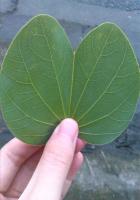Grimm, in the preface to his German translation of the Kiaempe Viser, characterizes this Ballad in the following magnificent words:-
"Seltsam ist das Lied von dem Held Vonved. Unter dem Empfang des Zauberseegens und mit rathselhaften Worten, dass er nie wiederkehre oder dann den Tod seines Vaters rachen musse, reitet er aus. Lange sieht er keine Stadt und keinen Menschen, dann, wer sich ihm entgegen stelit, den wirft er nieder, den Hirten legt er seine Rathsel vor uber das edelste und abscheuungswurdigste, ubar den Gang der Sonne und die Ruhe des Todten: wer sie nicht Iost, den erschlagt er;
trotzig sitzt er unter den Helden, ihre Anerbietungen gefallen ihm nicht, er reitet heim, erschlagt zwolf Zauberweiber, die ihm entgegen kommen, dann seine Mutter, endlich zernichtet er auch sein Saitenspiel, damit kein Wohllaut mehr den wilden Sinn besanftige. Es scheint dieses Lied vor allen in einer eigenen Bedeutung gedichtet, und den Mismuth eines zerstorten herumirrenden Gemuths anzuzeigen, das seine Rathsel will gelost haben: es ist die Angst eines Menschen darin ausgedruckt, der die Flugel, die er fuhlt, nicht frei bewegen kann, und der, wenn ihn diese Angst peinigt, gegen alles, auch gegen sein Liebstes, wuthen muss. Dieser Charakter scheint dem Norden gantz eigenthumlich; in dem seltsamen Leben Konigs Sigurd des Jerusalemfahrers, auch in Shakspeare's Hamlet ist etwas ahnliches."
"Singular is the song of the hero Vonved. After having received the magic blessing, he rides out, darkly hinting that he must never return, or have avenged the death of his father. For a long time he sees no city and no man; he then overthrows whomsoever opposes him;
he lays his enigmas before the herdsmen, concerning that which is most grand, and that which is most horrible; concerning the course of the sun and the repose of the dead; he who cannot explain them is slaughtered. Haughtily he sits among the heroes--their invitations do not please him--he rides home--slays twelve sorceresses who come against him--then his mother, and at last he demolishes his harp, so that no sweet sound shall in future soften his wild humour. This song, more than any of the rest, seems to be composed with a meaning of its own; and shows the melancholy of a ruined, wandering mind, which will have its enigmas cleared up! The anguish of a man is expressed therein, who cannot move freely the wings which he feels;
and, who, when this anguish torments him, is forced to deal out destruction against all--even against his best-beloved. Such a character seems to be quite the property of the North. In the strange life of King Sigurd, the wanderer to Jerusalem, and likewise in Shakspeare's Hamlet, there is something similar."
Svend Vonved sits in his lonely bower;
He strikes his harp with a hand of power;
His harp return'd a responsive din;
Then came his mother hurrying in:
Look out, look out, Svend Vonved.
In came his mother Adeline, And who was she, but a queen, so fine:
"Now hark, Svend Vonved! out must thou ride, And wage stout battle with knights of pride.
Look out, look out, Svend Vonved.
"Avenge thy father's untimely end;
To me, or another, thy gold harp lend;
This moment bounethee, and straight begone!
I redethee, do it, my own dear son."
Look out, look out, Svend Vonved.
Svend Vonved binds his sword to his side;
He fain will battle with knights of pride.
"When may I look for thee once more here?
When roast the heifer, and spice the beer?"
Look out, look out, Svend Vonved.
"When stones shall take, of themselves, a flight, And ravens' feathers are woxen white, Then may'st thou expect Svend Vonved home:
In all my days, I will never come."
Look out, look out, Svend Vonved.
His mother took that in evil part:
"I hear, young gallant, that mad thou art;
Wherever thou goest, on land or sea, Disgrace and shame shall attend on thee."
Look out, look out, Svend Vonved.
He kiss'd her thrice, with his lips of fire:
"Appease, O mother, appease thine ire;
Ne'er wish me any mischance to know, For thou canst not tell how far I may go."
Look out, look out, Svend Vonved.
"Then I will bless thee, this very day;
Thou never shalt perish in any fray;
Success shall be in thy courser tall;
Success in thyself, which is best of all.
Look out, look out, Svend Vonved.
"Success in thy hand, success in thy foot, In struggle with man, in battle with brute;
The holy God and Saint Drotten dear Shall guide and watch thee through thy career.
Look out, look out, Svend Vonved.
"They both shall take thee beneath their care, Then surely thou never shalt evily fare:
See yonder sword of steel so white, No helm nor shield shall resist its bite."
Look out, look out, Svend Vonved.
Svend Vonved took up the word again -
"I'll range the mountain, and rove the plain, Peasant and noble I'll wound and slay;
All, all, for my father's wrong shall pay."
Look out, look out, Svend Vonved.
Svend Vonved bound his sword to his side, He fain will battle with knights of pride;
So fierce and strange was his whole array, No mortal ventur'd to cross his way.
Look out, look out, Svend Vonved.
His helm was blinking against the sun, His spurs were clinking his heels upon, . . .
His horse was springing, with bridle ringing, While sat the warrior wildly singing.
Look out, look out, Svend Vonved.
He rode a day, he rode for three, No town nor city he yet could see;
"Ha!" said the youth, "by my father's hand, There is no city in all this land."
Look out, look out, Svend Vonved.
He rode and lilted, he rode and sang, Then met he by chance Sir Thule Vang;
Sir Thule Vang, with his twelve sons bold, All cas'd in iron, the bright and cold.
Look out, look out, Svend Vonved.
Svend Vonved took his sword from his side, He fain would battle with knights so tried;
The proud Sir Thule he first ran through, And then, in succession, his sons he slew.
Look out, look out, Svend Vonved.
Svend Vonved binds his sword to his side, It lists him farther to ride, to ride;
He rode along by the grene shaw;
The Brute-carl there with surprise he saw.
Look out, look out, Svend Vonved.















